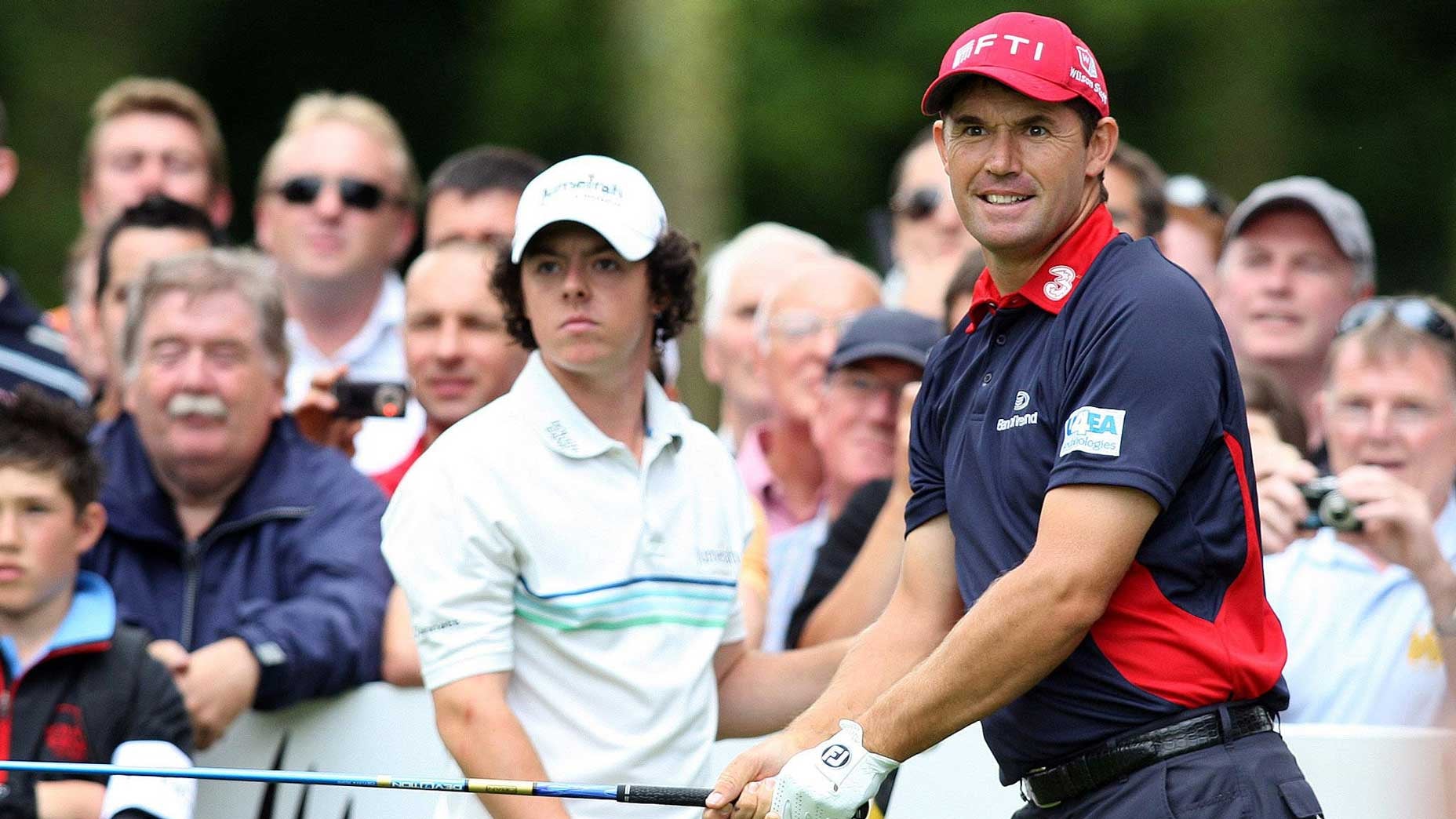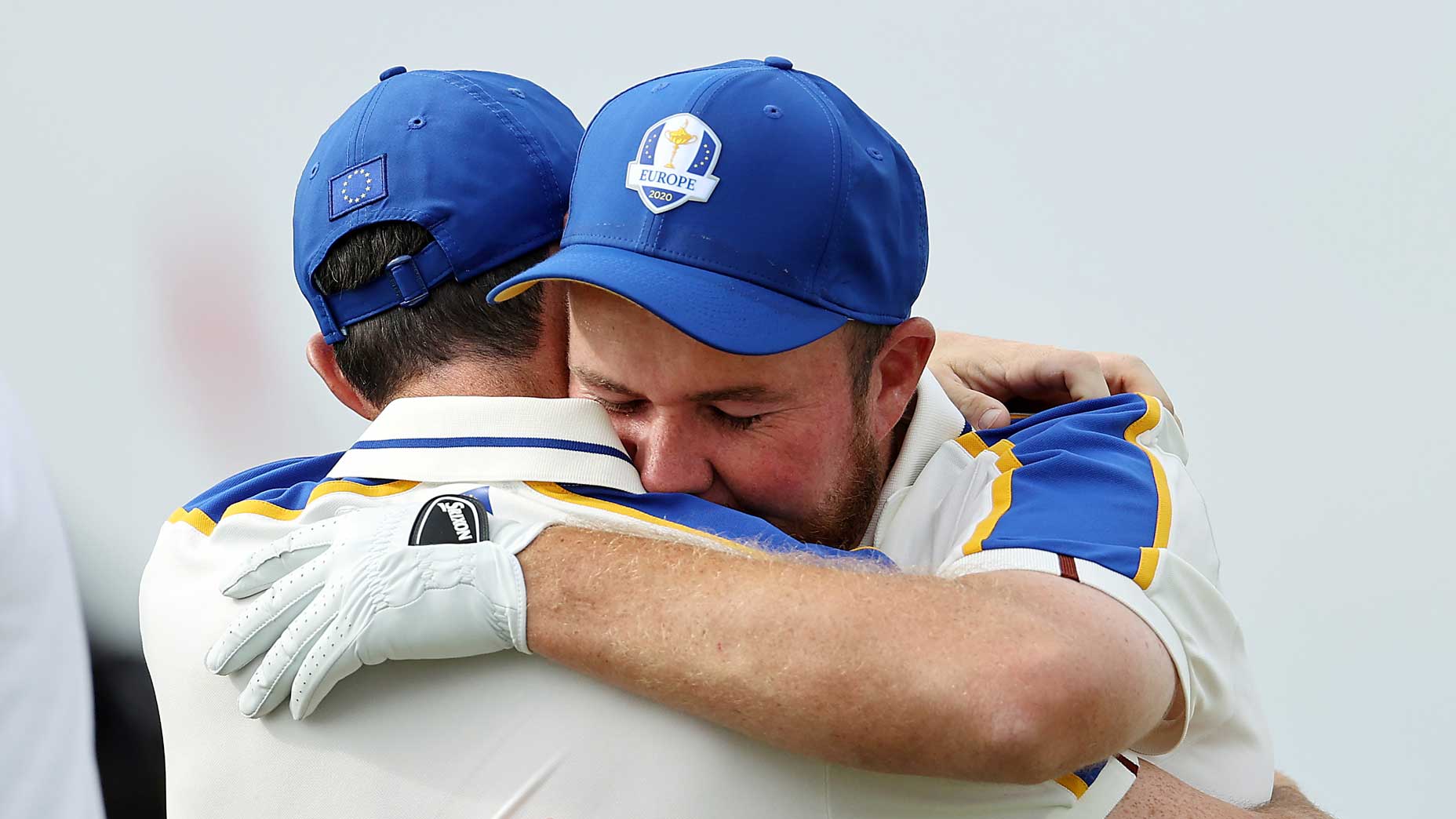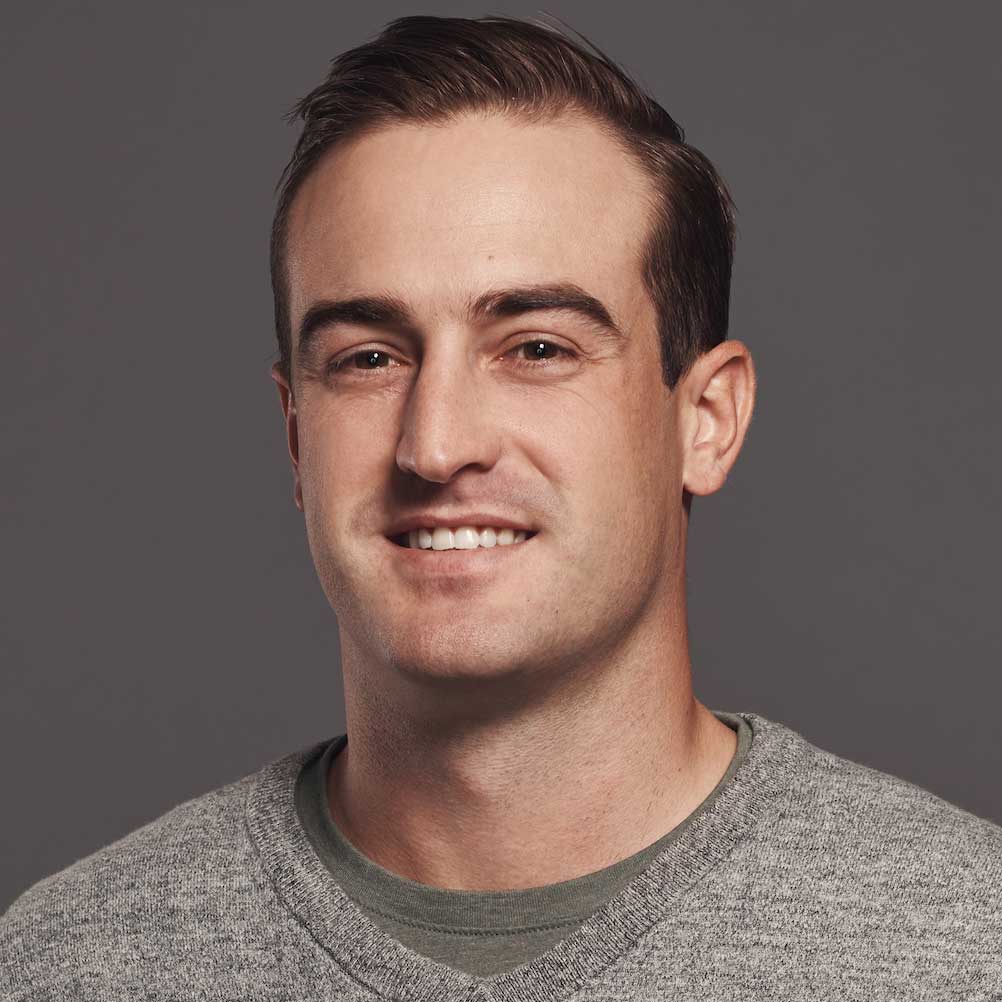
Padraig Harrington tees off ahead of Rory McIlroy a decade ago.
Getty Images
It happens in every industry, but in the ranks of professional golf it might be the most unnerving. Veteran workers plod along, owning their craft and suddenly a new competitor rises out of nowhere. They’re much younger, and seemingly much better. It happens on the PGA Tour, it seems, every few weeks.
Padraig Harrington, now playing on the Champions Tour for the first time, knows it well. Harrington has competed at the highest level of pro golf for decades now, winning three major championships along the way. He was the undisputed hottest golfer in the world in 2008, but it didn’t take long for his abilities to look fragile, in his eyes, compared to the up-and-comers of the late-2000s.
There was Dustin Johnson, Jason Day, Rickie Fowler, etc. And right behind them, this kid from Northern Ireland named Rory McIlroy.
“Certainly when Rory came out, you stand there and just, ‘How can you beat this guy?’” Harrington said Wednesday. “That puts you then under stress. And, you know, the greatest place you can be is going on the golf course thinking that your stuff is good enough and you’re not worried about everybody else.”
That’s a level of confidence all winning pros not only require, but seem to desire. The unabashed confidence that my best will beat everyone else’s best. When McIlroy burst onto the scene — particularly at the 2011 U.S. Open at Congressional — Harrington started to wonder if his best was still really good enough to hang with that crop of young guns. You know they exist, and you know there’s only so much defense you can play against them. It starts to seep into your mind when a mistake occurs, and perhaps one mistake leads to two. That’s how Harrington saw it.
“If you teed me off in a PGA Tour event and gave me the same tee times, same conditions as PGA TOUR pros,” Harrington explained. “And then you brought in, say — not to dis — you brought in the Irish pros, the Irish club pros, so a different standard. Play the exact same conditions for the four days, one against PGA Tour pros, one against club pros, I guarantee it, I’ll shoot much better against the club pros.”
What a mind game! Harrington had just peaked and was trying to sustain the best golf of his life. Golf that he thought could compete with Tiger Woods, the greatest player of all-time. But Harrington said he “had a strategy with Tiger” that seemed to work. The majors are good evidence. But then, at 37 years old, to see a mashing 21-year-old throw in darts all over a long-and-playing-longer U.S. Open track?
“The game jumped a lot with Rory and it was hard to follow,” he said. Sometimes, it’s as simple as that.
The good news for Harrington now is that he’s the up-and-comer on the Champions Tour. Like many of the other pros who have recently turned 50, Harrington immediately becomes one of the favorites to win the three-round events. It’s a total rebirth of a career that had seen him struggling recently to manage his Ryder Cup captain’s duties along with a playing career. With the Cup now in his rear-view — even if he will continually be asked about it — Harrington will try and follow in Phil Mickelson and Jim Furyk’s footsteps and win during his Champions Tour debut.









